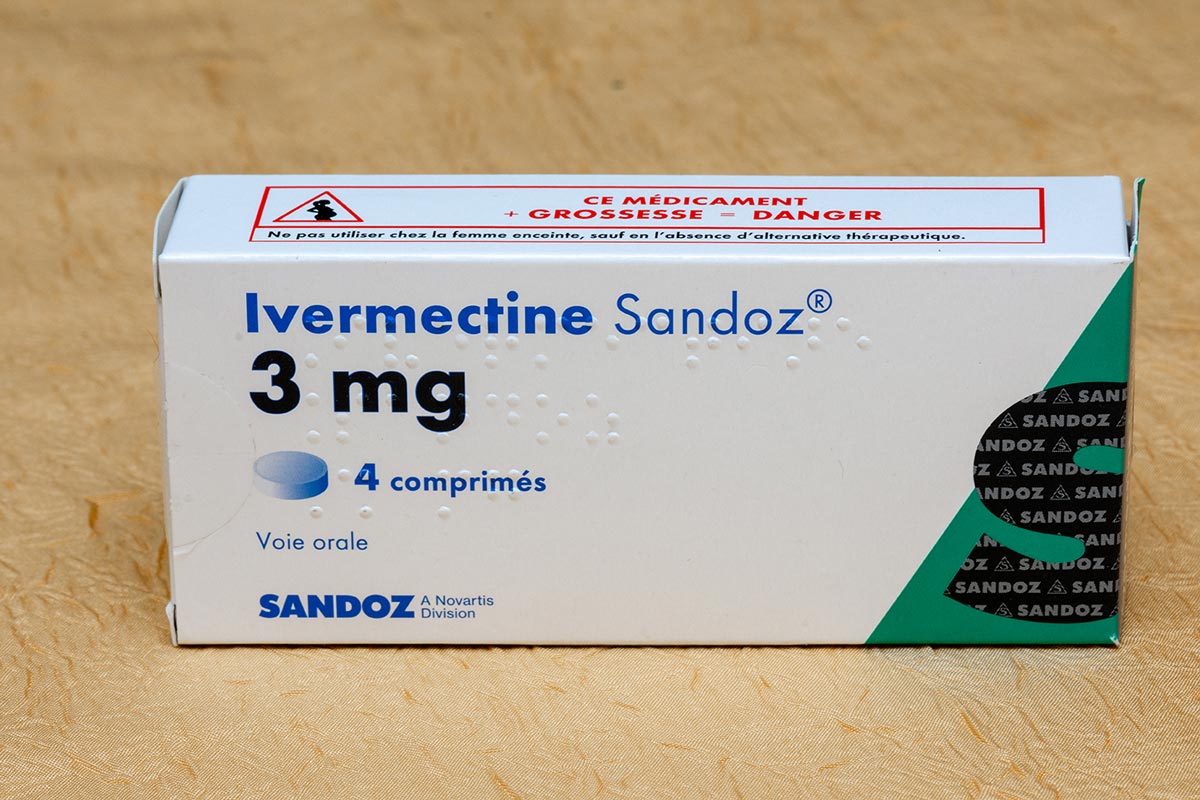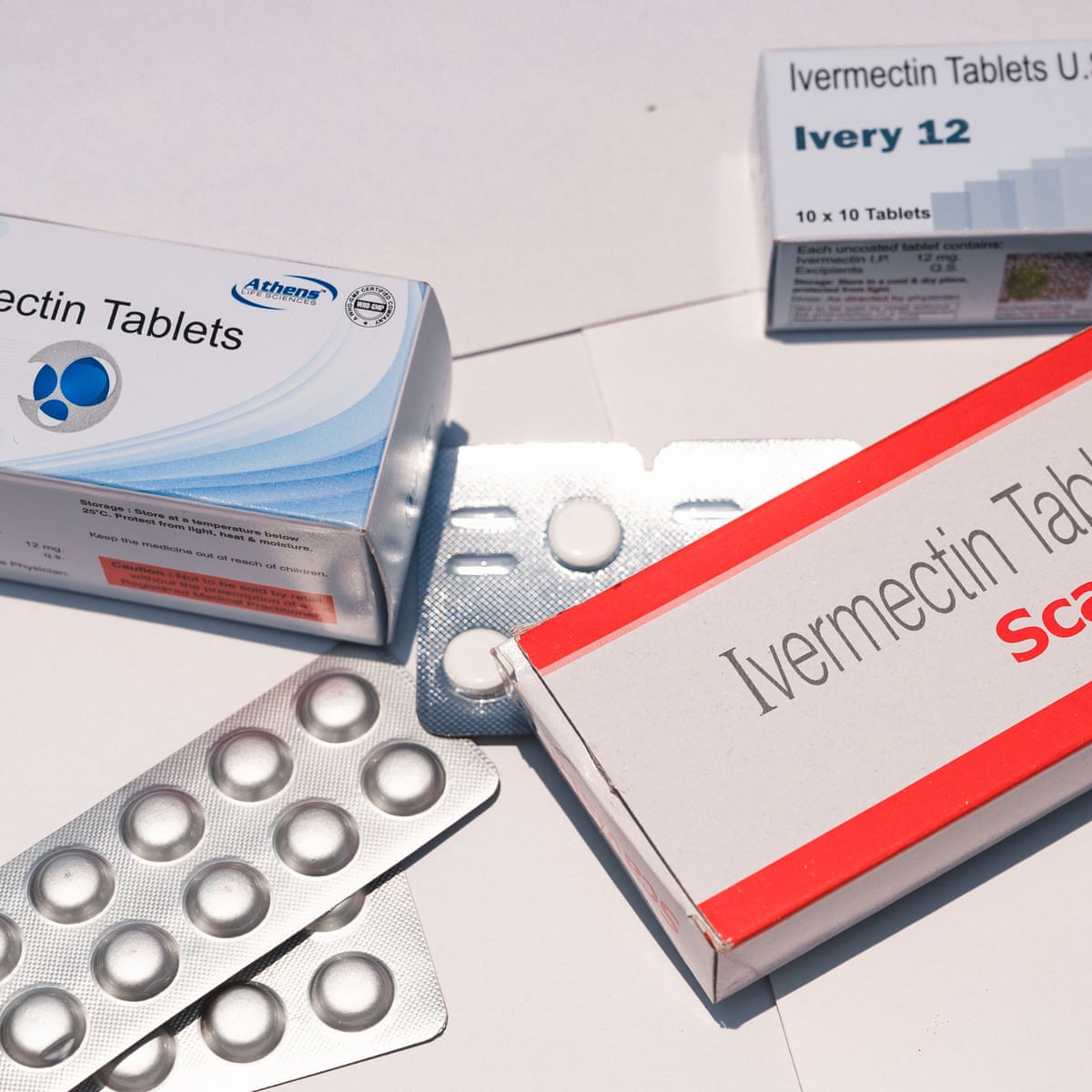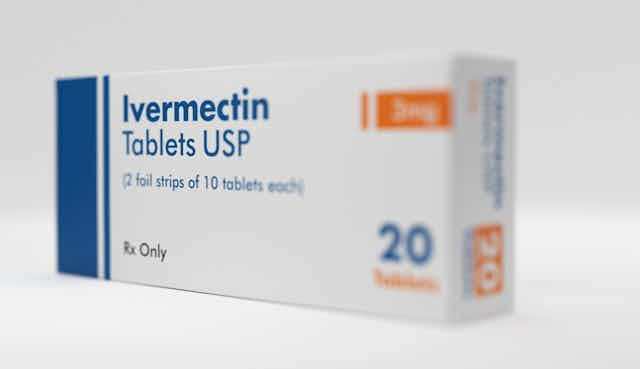Ivermectin is an antiparasitic drug. This WHO and FDA approved drug Ivermectin treats infections caused by parasitic worms, whipworms, hookworms, and head lice, and also certain skin conditions such as rosacea in humans.
Researchers found that Ivermectin can be a potential treatment for Covid 19 and associated inflammation. Keep reading to know more about Ivermectin treatment, the use of Ivermectin for Covid 19 and to get rid of inflammation.
Ivermectin for Treating Parasitic Infections

Researchers Satoshi Omura and Willian Campbell discovered an antiparasitic drug Avermectin and won the Noble Prize in Physiology/Medicine in 2015. This discovery was a great achievement for public health as it noticeably diminished the rates of parasitic infections such as river blindness which was a longtime health issue in several tropical regions.
Ivermectin is derived from Avermectin and approved by World Health Organization and Food and Drug Administration for the treatment of parasitic worms that causes intestinal strongyloidiasis, onchocerciasis, and other parasitic infections.
Ivermectin is also available in a topical form that is approved to treat certain external parasites such as head lice and skin conditions such as rosacea. Ivermectin medication is also used for the treatment and prevention of parasitic infections in animals.
Ivermectin for Treatment of Rheumatoid Arthritis (RA)
Rheumatoid Arthritis is an inflammatory autoimmune disease. When your own immune system mistakenly attacks the healthy cells of your body causing inflammation in the infected parts of the body, the condition is called autoimmune disease.
In a study performed in 2015, the Brazillian Society of Rheumatology observed the treatments for intestinal parasitic infections in patients with Rheumatic autoimmune diseases such as Lupus, RA, and Spondylarthritis.
According to this study, Ivermectin is the treatment of choice for many intestinal parasitic infections touching patients with Rheumatic autoimmune diseases.
Ivermectin treatment is found safe for most patients with Rheumatoid Arthritis when used exactly as prescribed by the doctor. However, it’s extremely important to consult a healthcare provider before taking Ivermectin, to make sure the medication is safe for you.
Does ivermectin work for Covid 19?
Conferring to the Centers for Disease Control and Prevention, the clinical trials performed to know the effectiveness of Ivermectin against Covid 19 shows that Ivermectin is not useful for treating or preventing Covid 19.

Some early studies that involved human participants noticed evidence regarding the effectiveness of ivermectin against Covid 19. However, these studies had failings in their methodologies that made them disposed to bias. Most studies found no significant usefulness of ivermectin for targeting Covid 19.
A study performed in 2021 in Colombia evaluated that after taking Ivermectin tablets for 5 days, it did not significantly improve the duration of symptoms in people with mild Covid 19 as compared to a placebo.
A study performed in Argentina in 2021 found that Ivermectin had not shown any significant impact on preventing hospitalizations of people suffering from Covid 19.
Similarly, highly regarded journals published about 2 more studies performed in 2022 to evaluate the effectiveness of Ivermectin for treating Covid 19. Those studies also found no significant benefits of Ivermectin.
The first study published in JAMA Internal Medicine states that researchers did not find any evidence regarding the benefit of Ivermectin for treating Covid 19. The study shows that Ivermectin does not prevent disease advancement in high-risk people with mild to moderate covid 19.
The New England Journal of Medicine published another larger study performed in Brazil, which evaluated that Ivermectin is not able to lower the rates of hospitalization due to the progression of Covid 19 disease.
Ivermectin Vs. Hydroxychloroquine
Just like Ivermectin Hydroxychloroquine is also used to treat parasitic infections. It is approved by FDA for treating and preventing malaria which is a parasitic infection spread by mosquitos. People used Hydroxychloroquine off-label in order to prevent and treat covid 19.
Contrasting Ivermectin, Hydroxychloroquine is often used to treat Rheumatoid Arthritis. It is contemplated as a disease-modifying anti-rheumatic drug (DMARD) when considered to treat arthritis. The anti-inflammatory properties of Hydroxychloroquine significantly reduce swelling and pain and also prevent joint impairment and long-term debility.
Previously FDA had approved the emergency use authorization for Hydroxychloroquine for treating hospitalized patients with severe Covid 19. However, the authorization was canceled after the research showed that Hydroxychloroquine is not as effective against Covid 19 as was believed initially.
The National Institutes of Health’s Covid 19 treatment Guidelines advise people not to take Hydroxychloroquine for treating covid 19. A study performed in England in 2020 found no clues that RA patients who were taking Hydroxychloroquine before Covid 19 pandemic had better benefits when they acquired Covid 19 than patients not taking Hydroxychloroquine.
Anti-inflammatory and antiviral properties of Ivermectin and its potential utility in Covid 19

The Appearance of the new SARS-CoV-2 virus has made researchers explore alternative treatments among existing medications such as Ivermectin. It is a semi-synthetic antiparasitic drug derivative of Avermectin B1 which holds a broad spectrum activity and extreme efficacy and safety.
Avermectin employs an anti-inflammatory effect by down-regulating the nuclear transcription factor kappa-B and mitogen-activated protein kinase activation pathway. Thus Ivermectin can probably help manage inflammatory diseases.
Ivermectin medicine has been already used by over 2 billion patients. In vitro, it is found to inhibit the activity of importin proteins (IMP) that identify nuclear localization signals from viral properties and boost their production.
Ivermectin constrains DENV2, HIV-1, and certain other flaviviruses from inflowing the nucleus and duplicating. Ivermectin medication also exhibits antiviral effects against Dengue virus 1-4. The drug has been found to constrain the proliferation of various tumor cells.
During the in vitro studies, Ivermectin administration at 5 μM diminished RNA levels of SARS-CoV-2 5000-fold. However, the average maximum inhibitory concentration for the virus is 35 times higher than the maximum plasma concentration that lost the enthusiasm and no further studies were performed. In order to attain the maximum inhibitory concentration in the lung over 25 times the authorized weekly dose needs to be used.
In Latin America, when Hydroxychloroquine was not available, Ivermectin was used with suitable outcomes. In comparison 704 hospitalized patients who got Ivermectin doses (150 μg/kg) with 704 controls, it was noticed lesser mortality rates amongst mechanically ventilated patients who had got the medication.
Overall the mortality was lesser in 1.4% of cases than in 8.5% of controls with a hazard ratio of 0.2, 95% CI: 0.11-0.37. This single-dose arrangement has been conservatively used in many parasitical diseases. Ivermectin is known to be well tolerated and safe and a single dose of Ivermectin may not be adequate for viral diseases like Covid 19, further studies are necessary.
Ivermectin may have anti-inflammatory effects against inflammatory cytokines in late-stage Covid 19
Ivermectin holds a place in WHO’s list of Essential Medications and is being used clinically since 1981 for treating various parasitic infections in humans. Also, Ivermectin is broadly used in veterinary practices.

A standard clinical approved dose of Ivermectin 9 mg has been linked with some cases of speedy clinical resolution in patients hospitalized with severe Covid 19. The clinical studies to evaluate the utility of Ivermectin in this regard are ongoing.
Reportedly Ivermectin inhibits the production of SARS-CoV-2 in vitro but IC50 for this effect, 2 µM has been distinguished to be 35-fold higher than the greatest concentration attained after administrating the approved clinical dose of Ivermectin to humans, forming hesitation on the usefulness of this agent as an antiviral drug in Covid 19 if enormously higher doses are used.
However, drugs blocking viral replication are expected to be of lesser value in the situation of the late, cytokine storm-associated phase of Covid 19 and narratives of the success of Ivermectin in this disorder refer to that phase.
The SARS-CoV-2-caused disease is categorized into different phases including asymptomatic disease, mild symptomatic disease, and severe inflammatory respiratory disease (lung inflammation). The first two phases depend on SARS-CoV-2 duplication and the third phase is scribed to the hyper-inflammatory state known as cytokine storm.
Study evidence demonstrates that Ivermectin can act at various phases of the disease. First, controlled studies need to be conducted in order to demonstrate the anti inflammatory response of Ivermectin against Covid 19. Then to recognize if its effect is due to the antiviral action of Ivermectin and the final studies must be conducted to evaluate if the administration of Ivermectin is convenient in hospitalized patients because of its apparent anti inflammatory activity.
Effect of ivermectin on the total number of inflammatory cells and the MPO activity in the LPS- or BLM- treated mice
Ivermectin has shown anti-inflammatory effects in vitro and in vivo. It works by diminishing the replication of TNF-alpha, IL-1, and IL-6 and overpowering LPS-induced NF-kB translocation.
The administration of 2 mg/kg of Ivermectin in mice conquers mucus hypersecretion in the respiratory tract and lessens the conscription of immune cells and the creation of cytokines and IgE/IgG1 in bronchoalveolar lavage. It demonstrates that Ivermectin holds an anti-inflammatory effect not just at a systemic level but also on the lung tissue.
LPS-treated mice had less inflammation and more types of cells than control mice. In vivo, studies show that Ivermectin can be operative against amplified BALF inflammation by 1 mg/kg. The antibacterial Ivermectin treatment helps avert BALF inflammation in humans.
Ivermectin inhibits LPS-induced production of inflammatory cytokines and improves LPS-induced survival in Mice. Ivermectin has demonstrated significantly reduced levels of these pro-inflammatory cytokines in vivo.
These findings show that Ivermectin may alleviate ALI caused by BLM or LPS in mice possibly by reducing the inflammatory responses. altogether, Ivermectin may treat acute lung injury or acute respiratory distress syndrome.
Ivermectin for Allergic skin infections
Ivermectin is broadly used to treat various parasitic infections in both humans as well as veterinary medicines. Recent reports suggest that Ivermectin may also possess anti inflammatory properties.
The activity of Ivermectin investigated in a murine model of atopic dermatitis persuaded by repeated exposure to the allergen Dermatophagoides farina and in standard cellular immunology assays.
The fresults demonstrated that topical Ivermectin improved allergic skin inflmamtion by diminishing the priming and activation of allergen specific T cells and the production of inflammatory cytokines.
While Ivermectin had no key effect on the functions of dendritic cells in vitro and in vivo, it directly reduced the activation and proliferation of T cell and cytokine production ensuing polyclonal and antigen specific stimulation.
Overall, the evidence and outcomes show that Ivermectin is capable of topical inflamtory properties that can be significan applications for treating T-cell mediated skin inflammatory diseases. The researchers noticed that topical Ivermectin is coorealted with improved allergic skin inflammation.




